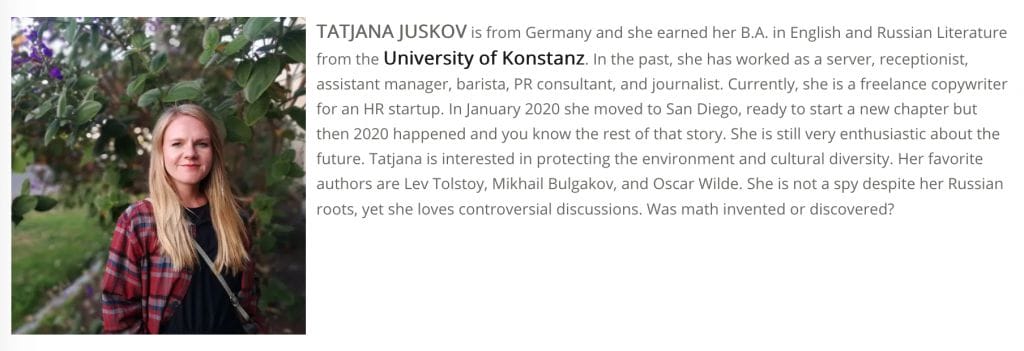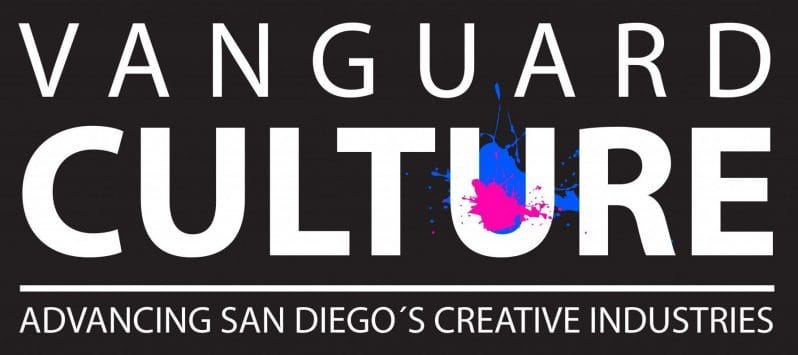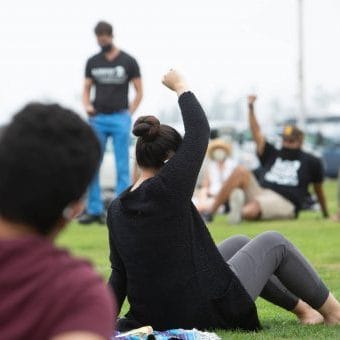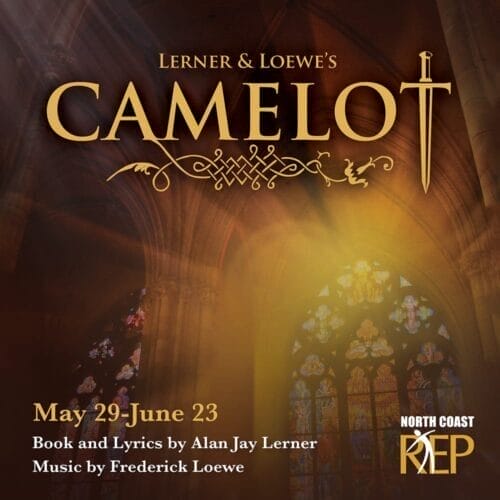Written by Tanja Juskov
October 21, 2020
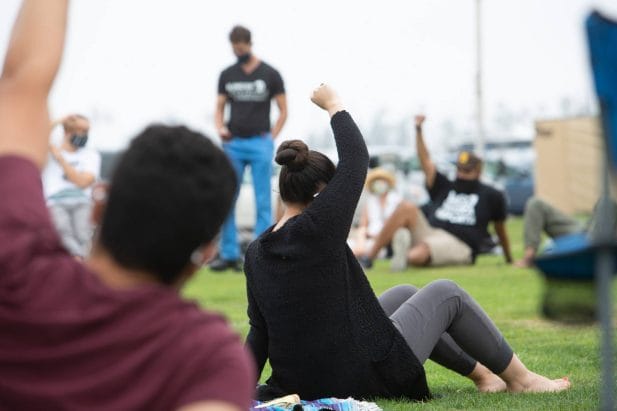
Audience members respond to audio prompts during a performance of “Good Trouble”
“I have the feeling that here today, we are too quiet, we are too quiet. We need to make some noise, we need to find a way to get in the way, we need to find a way to get into good trouble, necessary trouble if we’re going to save America and create the beloved community.”
Inspired by those words by the late John Lewis, Blindspot Collective – a local theater company that produces radically inclusive programming at the intersection of advocacy, education, and entertainment – has created Good Trouble, a production that is many things at once: a play, a musical, a protest, but most of all it is a way to interact with your community and get in touch with others, to listen, to share, to uplift one another.
While everybody is encouraged to participate, the focus and viewpoints portrayed are those of Generation Z. There is a direct line between the first civil rights movement leaders and the young activists of today. John Lewis was 15 years old when he first engaged in the civil rights movement in 1955 but “the issues remain, the movement is the same. This is a continuation”, says Catherine Hanna Schrock, Blindspot Collective’s Director of Community Development in an interview with Vanguard Culture.
“We felt like this is an important time to really think about the social justice issues that are on people‘s minds. And we were compelled by how many young people were the leaders of this movement and a lot of people are not aware of how much youth are at the forefront of so many social movements. So this is how we came up with the concept of an interview theater piece, focused on youth activism and social justice movements from the past few years.” Schrock explained after being asked what inspired her and Blake McCarty, the theatre’s director of Creative Development, to do the production.
Good Trouble is an audio play, that incorporates precise words spoken by people interviewed about a specific topic. There is no stage and no live performance, but rather an audio file that participants listen to together. The idea is to create a shared experience around the topic of social justice.
The intention of the show is to re-energize and to propel the social justice movement. To create a community that uplifts and unifies.
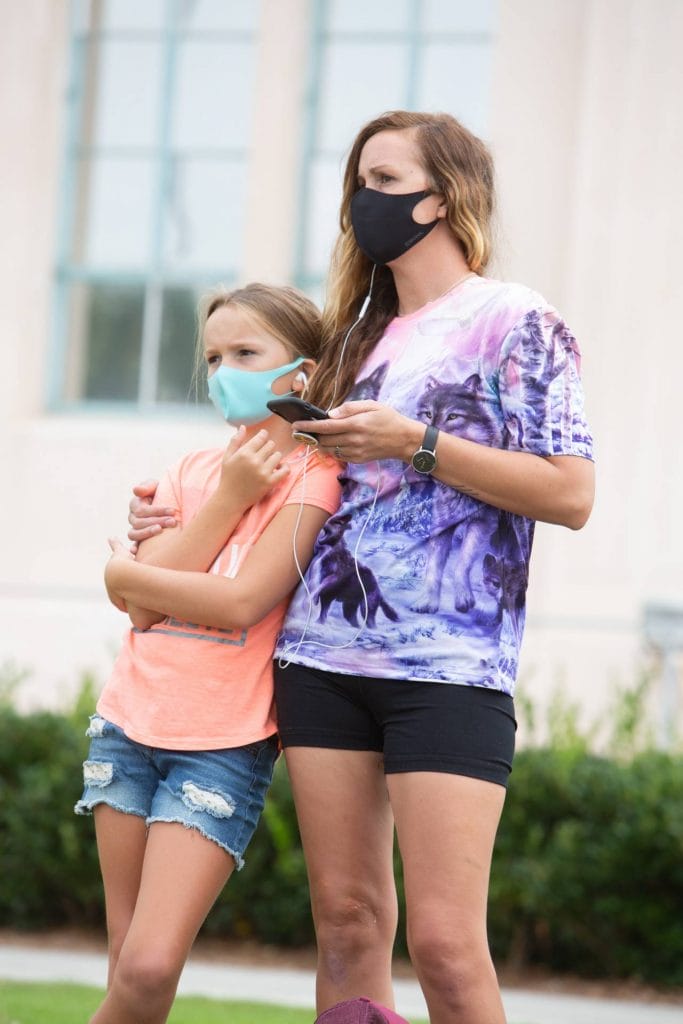
Audience members listen to performance of Good Trouble
The repeated refrain of “listen” in the play is intended as a unifying medium. “The best thing that people can be doing right now, is listening to one another. One of the things that draw us to theatre is the ability to empathize with others through storytelling, to imagine what someone else’s experience may be and to have some of our own expectations, assumptions, or perspectives shift. If we can actually take the time to listen, to hold space for one another, some of that division might be overcome. And simultaneously, I’m not a member of Gen Z, I’m out of that age bracket, but I also do believe that there is some truth to the need for radical change.”, McCarty explains.
The first event took place at Waterfront Park with about 20 people gathered on picnic blankets at a safe distance from each other. Through a QR code the participants could access the audio file, press play and be part of the pop-up performance.
First, people lay or sit on their picnic blankets, their lawn chairs, alone or in pairs, but all of them with their headphones on their head.
The audio starts with recorded news coverage from protests, followed by the voice of John Lewis talking about the need to cause some good trouble, followed by voices from Generation Z, their experiences as activists, their stories, their ideas of the future, mixed with original music (Richard Allen & Taran Gray) and poetry. The voices are those of actors but the stories belong to real people. I instantly feel a connection to the person talking to me, more so than to the person sitting next to me on the grass. And that’s not a coincidence. Real words, real stories, music and poetry are uniting pieces that create empathy and lift the spirits. The voice in my ear gives me instructions: “Say it with me! No Justice, No Peace! No Justice, No Peace!” Or tells me to take off my shoes and to touch the earth with my bare feet to feel it and to make me aware of it. It works, I feel connected to the earth. But not to the person sitting next to me. The voice encourages me to look around and make me aware of the other participants. The intention to connect the people who are listening to the same play is there, but the implementation is flawed. I’m hoping that the voice asks us to look into each other’s eyes, to somehow communicate with each other during the piece, even if only at a distance. But it doesn’t happen. It’s incomparable with the feeling of being part of a moving crowd during a protest. And yet I still feel a little bit closer to the other participants than before the play. We danced together, put our feet on the ground together and took breaths in unison.
After the audio play, a discussion and reflection roundtable takes place. The participants have the chance to say what touched them most, what resonated most with them when they listened to the audio play. But it is also a chance for local organizers, who have also been invited, to present their work. It’s a chance to talk to activists and to take action. And in the end, what the show tried to achieve in the first place finally happens: People interact with each other, communicate, exchange ideas, get to know each other, want to support each other in order to stand up for shared values.
And although “the concept of community goes beyond the physical presence, I think that there is a deep urgency for people to connect”, said Schrock, “due to digitalization, the sense of isolation came before the pandemic, but now there is even more of that. What does it really mean to build community? There is a bigger sense of belonging to the community of humanity but there is also the sense of just meeting in local parks and be together”.
Upcoming events take place on October 24, 25 and November 1 (free admission).

